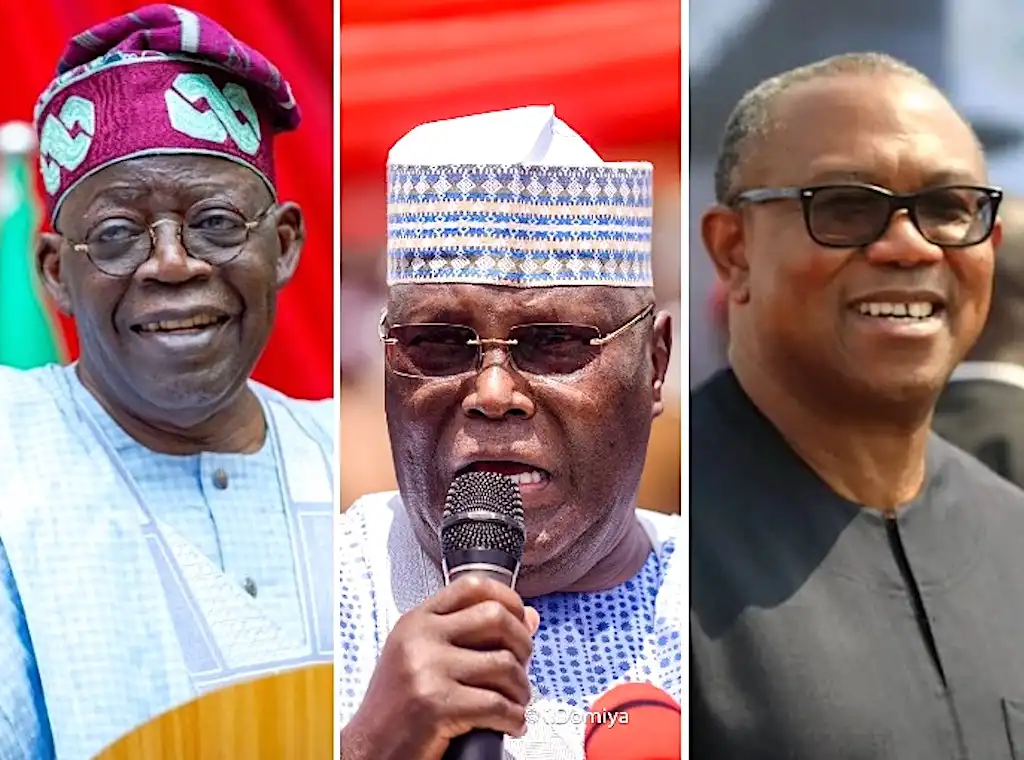In a seismic shift in Nigerian politics, former Vice President Atiku Abubakar and former Labour Party (LP) presidential candidate Peter Obi have joined the African Democratic Congress (ADC) to form a coalition.
This coalition is aimed at unseating President Bola Tinubu and his All Progressives Congress (APC) in the 2027 general election.
The move, announced on July 2, 2025, at the Yar’Adua Centre in Abuja, marks one of the most significant political realignments since Nigeria’s return to democracy in 1999.
Why the Coalition?
The formation of the ADC coalition stems from lessons learned in the 2023 election, where a divided opposition allowed Tinubu to win with 37% of the vote, while Abubakar (PDP) secured 29% and Obi (LP) 25%.
Obi’s departure from the PDP after it selected Abubakar as its candidate had split the opposition vote.
To avoid a repeat, Abubakar, 78, and Obi, 63, have united under the ADC, joined by political heavyweights like former Senate President David Mark, ex-Rivers Governor Rotimi Amaechi, and former Kaduna Governor Nasir El-Rufai, who recently left the APC.
Interim ADC chairman David Mark emphasized the coalition’s goal to “save Nigeria’s democracy” and prevent a one-party state, accusing Tinubu of “state capture” amid economic hardship and insecurity.
Key Figures in the ADC Coalition
The coalition boasts prominent defectors from the PDP, LP, and APC, including former PDP chairman Uche Secondus, ex-APC National Chairman John Odigie-Oyegun, and former ministers like Rauf Aregbesola and Solomon Dalung.
Political commentators predict Abubakar will run for president—his fifth attempt—with Obi as his vice-presidential candidate, leveraging their combined voter bases from 2023.
However, tensions exist, as Obi’s supporters, known as “OBIdients,” prefer him as the presidential candidate, citing his youth and grassroots appeal, while Abubakar’s camp views his experience as a former vice president as paramount.
Their 2019 collaboration, with Obi as Abubakar’s running mate, failed against Muhammadu Buhari, raising questions about their ability to align effectively.
ADC’s Strategic Advantage
The ADC, established in 2005 as the Alliance for Democratic Change, was chosen over forming a new party, the All Democratic Alliance (ADA), due to the complexity of registering new parties with Nigeria’s Independent National Electoral Commission (INEC).
The ADC’s existing national structure, with active machinery in all 36 states and two House of Representatives members, provides a ready platform.
Despite internal resistance from figures like 2023 ADC presidential candidate Dumebi Kachikwu, who criticized the “takeover,” the coalition gained support from state chapters like Kebbi, which see it as a path to better governance.
Challenges for PDP and LP
The defections have dealt a blow to the PDP and LP, which are grappling with internal crises some attribute to government interference.
The PDP, Nigeria’s largest opposition party, has ruled out joining the ADC, insisting on facing the APC independently, while the LP urged supporters to remain loyal despite Obi’s exit.
Analysts like Shehu Iliyasu predict the ADC could surpass the PDP as Nigeria’s main opposition due to the calibre of its new members.
However, the PDP and LP control 11 states, providing a strong base unless their governors defect.
Tinubu’s Response and 2027 Prospects
The APC, which has endorsed Tinubu, 73, for a second term, dismissed the coalition as inconsequential.
Acting APC chairman Ali Bukar Dalori claimed it lacks grassroots support, while Minister of Aviation Festus Keyamo called it a “PDP faction” led by Atiku, predicting it strengthens the APC by exposing opposition weaknesses.
Analysts are divided: some, like Ben Kenneth, argue the coalition’s combined 54% vote share from 2023 could defeat Tinubu if united, while others, like Sani Hamisu, note incumbents rarely lose in Nigeria due to state resources.
Concerns over Tinubu’s health, with unverified reports of medical trips abroad, add uncertainty, though the presidency insists he is fit.
Road to 2027
The ADC coalition faces internal challenges, particularly over leadership roles, with Obi’s supporters pushing for him to lead the ticket.
Posts on X reflect strong “OBIdient” loyalty to Obi, suggesting potential friction if he is relegated to vice president.
The coalition must also navigate INEC’s stringent requirements and counter APC’s alleged tactics to poach opposition figures.
With Nigeria facing economic woes and insecurity, the ADC’s promise of a “united front” to address these issues resonates, but its success hinges on maintaining unity and mobilizing voters by 2027.























